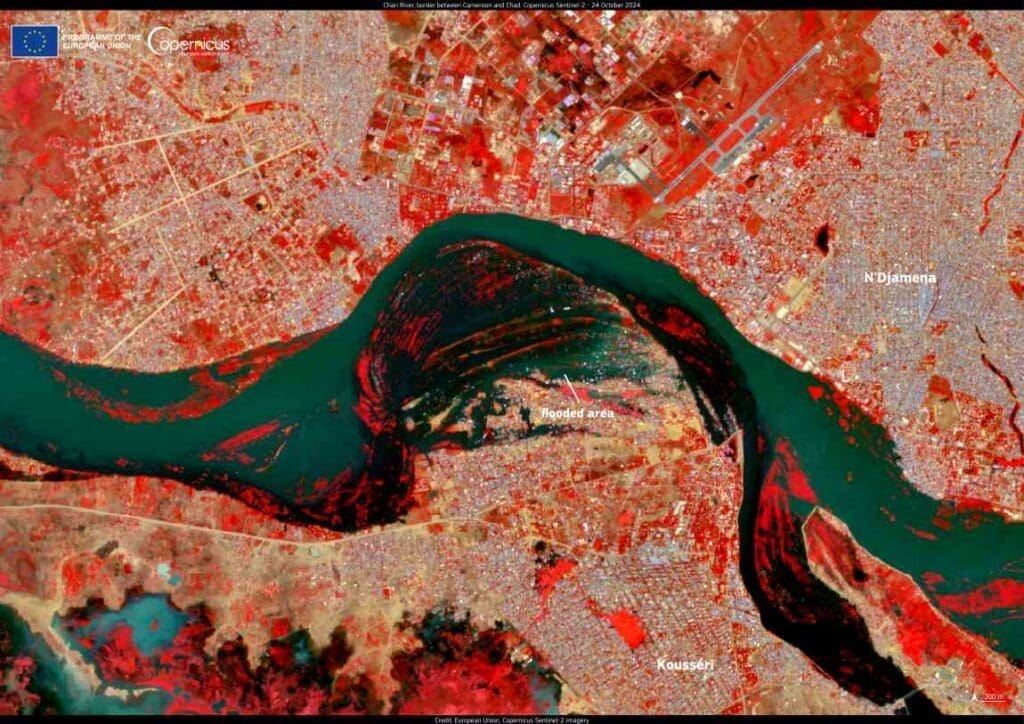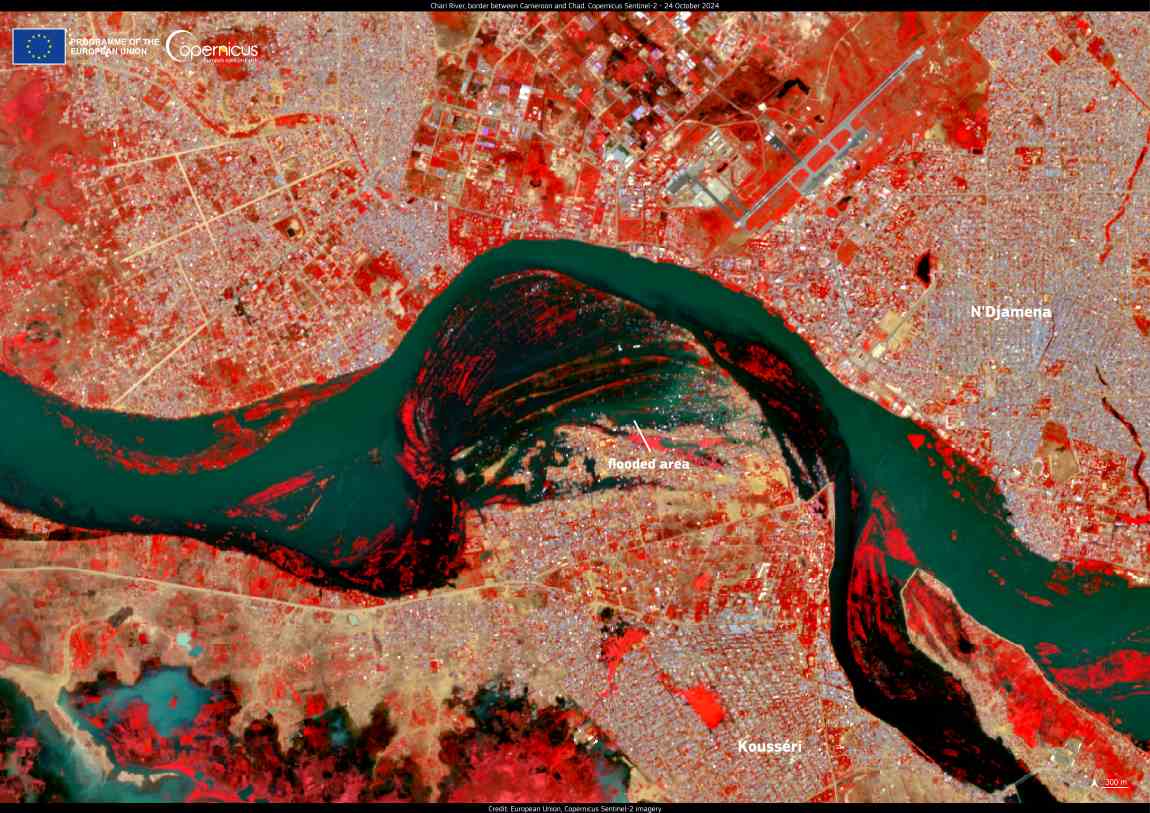Since July 2024, heavy rainfall and rising water levels in major rivers, including the Chari River, have caused severe flooding in the Far North region of Cameroon, affecting more than 400,000 people as of 11 October 2024.
The flooding has impacted schools, health centres, and farmland. In neighbouring Chad, approximately two million people have been severely affected by flooding, which has limited access to clean water. The Chari River is expected to continue rising in the following weeks.

A flooded area north of Kousseri, Cameroon, is visible in this image acquired by one of the Copernicus Sentinel-2 satellites on 24 October 2024. N’Djamena, the capital of Chad, can be seen to the north of the Chari River.
The Copernicus Emergency Management Service (CEMS) has been activated to provide flood extent and damage assessments of the situation in Cameroon. More information is available here.
Featured image credit: European Union, Copernicus Sentinel-2 imagery




